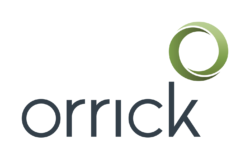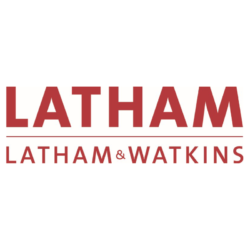Lawyers for a Sustainable Economy
A Law Firm-Led Effort to Provide Pro Bono Legal Services to Sustainability-Focused Entrepreneurs and Nonprofit Organizations
The Lawyers for a Sustainable Economy Initiative matches nonprofits and startups working in the field of environmental sustainability with law firms providing pro bono legal services. The initiative continues to grow, with 20 law firms providing pro bono legal help to over 160 startups and nonprofits through the initiative over the past five years. The firms in the initiative have dedicated over $100 million in pro bono services over the past five years to support sustainability efforts both inside and outside of the initiative.
Stanford Law School and Stanford’s Precourt Institute for Energy facilitate connections between participating firms and potential pro bono clients and track the effort’s impact, including directed research aimed at eliminating the barriers green startups face in accessing pro bono legal services.
How it Works
20
Major, private U.S. law firms
160
Startups and nonprofits assisted
4
Corporate and non-profit partners
Getting Involved
If you are interested in joining the initiative as a law firm or as a corporate partner, please email us at lawyersforsustainability@law.stanford.edu.
The firms offer pro bono legal assistance to entrepreneurs and non-profits taking on key sustainability challenges.
About the Initiative
Entrepreneurial and community-based efforts to advance sustainability are surging within the United States, but these efforts are often slowed by limited access to top-flight legal services. Even obtaining legal help on first-order matters associated with formation and incorporation can present hurdles for entrepreneurs. Lawyers for a Sustainable Economy provides an easier way for entrepreneurs and environmental non-profits working on sustainability projects to find firms that are offering pro bono help on these types of important matters. The Lawyers for a Sustainable Economy Initiative was incubated to facilitate this match.
The LSE initiative was announced at the 2018 Global Climate Action Summit in San Francisco and dedicated to the memory of Nancy McFadden, former Chief of Staff to Governor Jerry Brown. Karen Skelton, David J. Hayes and Ali Zaidi worked with Governor Brown, Attorney General Xavier Becerra, and Stanford Law School and Stanford’s Precourt Institute for Energy to launch the Lawyers for a Sustainable Economy initiative. Stanford Law School will continue to provide periodic updates on the matters member firms are taking on as part of their commitment under the initiative.
The types of legal services that firms participating in Lawyers for a Sustainable Economy may be able to provide include: support with incorporation, corporate governance (e.g., bylaws, policies), contracts, real estate, IP protection, website-related issues (e.g., privacy policies, terms of use), structuring advice for financing and investment, tax advice, and litigation.


We applaud the work of Lawyers for a Sustainable Economy, which has connected entrepreneurs and community-based non-profits with the expert legal advice they need to advance climate and environmental justice efforts. While the threat of climate change is immense, we look optimistically forward as our efforts and partners grow. We will continue to harness the power of the public and private sector together, moving forward to build a brighter, cleaner, and more sustainable future.
Xavier Becerra, Former California Attorney General
2023 Pro Bono Project Highlights
Who's in the Initiative?
Law Firms
LSE welcomed Vinson & Elkins and Willkie in 2023 and Foley Hoag and Perkins Coie in 2024! The firms have pledged the amounts below in free legal services for on-going and new sustainability matters in 2024:
- Akin Gump ($250,000)
- Arnold & Porter* ($2 million)
- Beveridge & Diamond ($250,000)
- Cooley* ($1 million)
- Debevoise & Plimpton ($1 million)
- Fenwick ($250,000)
- Foley Hoag ($1.5 million) (new to the initiative in 2024!)
- Foley & Lardner ($250,000)
- Hogan Lovells* ($250,000)
- Holland & Knight* ($1 million)
- Latham & Watkins* ($1 million)
- Michelman & Robinson ($250,000)
- Morgan Lewis ($250,000)
- Morrison & Foerster* ($4 million)
- Nixon Peabody ($1 million)
- Orrick ($2 million)
- Perkins Coie ($250,000) (new to the initiative in 2024!)
- Ropes & Gray ($1 million)
- Seyfarth Shaw ($350,000)
- Vinson & Elkins ($250,000) (new to the initiative in 2023!)
- Willkie Farr & Gallagher ($250,000) (new to the initiative in 2023!)
- Wilson Sonsini Goodrich & Rosati* ($3 million)
*Lead founder of the LSE Initiative
Corporate Partners
The initiative is truly a collaborative one, with the private sector, NGOs like Grist, and accelerators like Venture for ClimateTech working to support connections between law firms and pro bono recipients. For example, Microsoft has helped to connect grantees from its AI for Earth program – a five-year, $50 million initiative that supports and partners with environmental groups, academic researchers, and start-ups – with the initiative for legal support. Pro bono lawyers from additional companies, including Goldman Sachs, have also volunteered to assist LSE firms.
Companies participating in the Lawyers for a Sustainable Economy are making a commitment to assist the initiative in a number of ways, including by: (1) enabling company in-house lawyers to provide pro bono assistance to clients directly, or in coordination with outside LSE-member law firms, on company time; (2) encouraging outside law firms and other companies to participate in the LSE initiative; and (3) using their community outreach activities to identify potential clients who may qualify for, and benefit from, pro bono services provided through the LSE network.
Sponsors*
Premium Sponsors |
|||
 |
 |
 |
 |
Partner Sponsors |
|||
 |
 |
||
Advocate Sponsors |
|||
 |
 |
||
 |
 |
 |
 |
*Premium Sponsors are sponsors providing over $15,000, Partner Sponsors are sponsors providing over $7,500, and Advocate Sponsors are sponsors providing over $2,500

"Tackling these tough issues today will create real and lasting impact in communities all over the world for generations to come."
T. Clark Weymouth, Pro Bono Partner at Hogan Lovells

![How it Works (step-by-step): [1] Fill out the form; [2] Discuss legal request with Stanford Law School; [3] Stanford Law School provides your project description and request to the firms in the Initiative; [4] Stanford Law School will help to connect you with a firm.](https://law.stanford.edu/wp-content/uploads/2018/11/lawyers-for-a-sustainable-economy-2.png)











